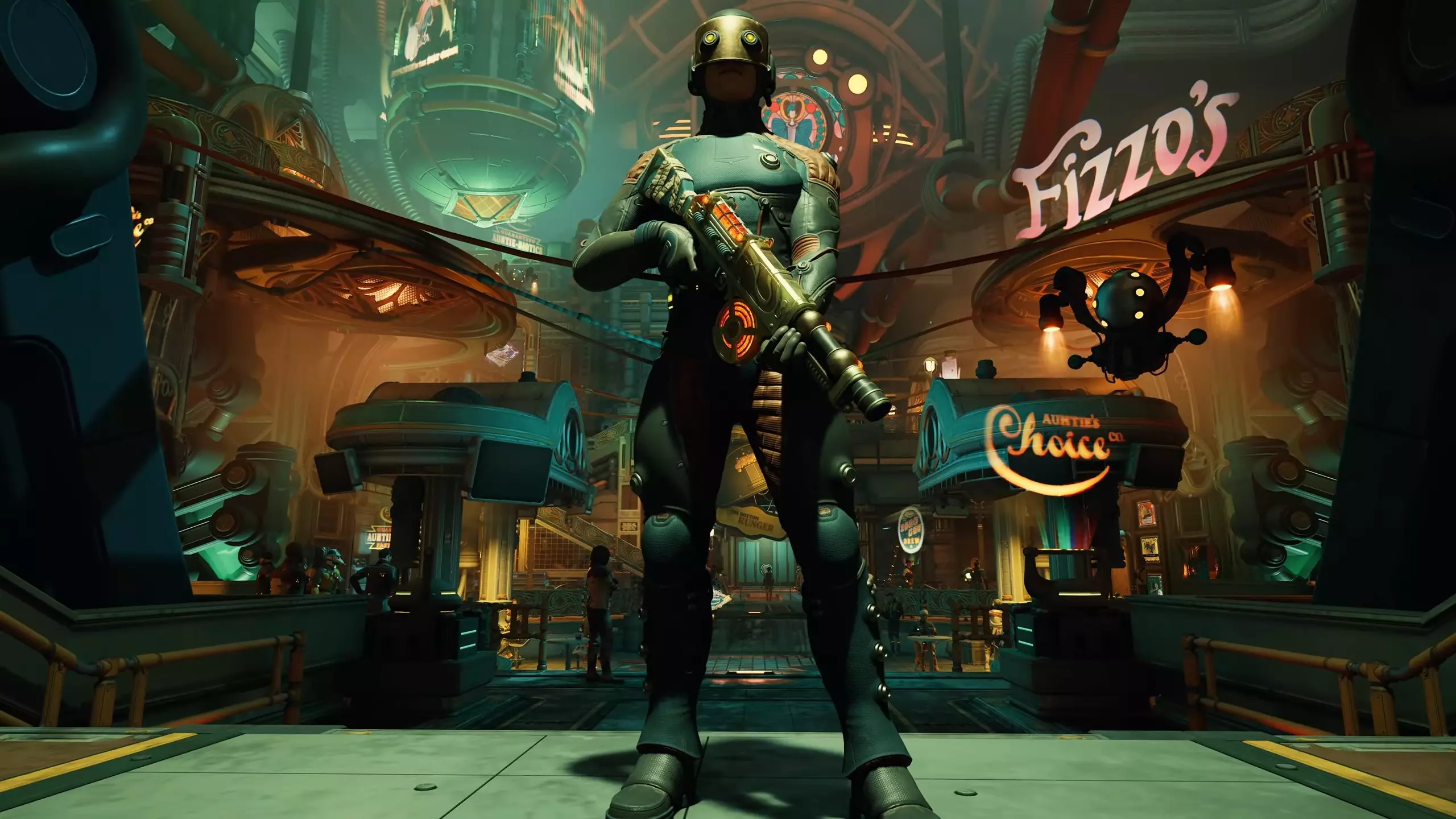In the ever-evolving landscape of role-playing games, where player accessibility often reigns supreme, Obsidian Entertainment’s upcoming title, The Outer Worlds 2, dares to tread a different path. Game director Brandon Adler candidly shares that the studio is not interested in crafting a game that tries to appease everyone. Instead, it aims to carve a niche, embracing the idea that “sometimes you have to pick a lane.” In a gaming industry inundated with titles conforming to a homogenized formula, this bold declaration is not merely refreshing—it’s essential.
Adler’s perspective harkens back to classic RPGs, where every decision carved a player’s destiny, irrevocably shaping their journey. As someone with a legacy tied to RPG classics like Fallout: New Vegas, Adler’s commitment to maintaining that deep connection between player choice and narrative consequences is evident. The Outer Worlds 2 is positioning itself as a game that thrives on the importance of player agency, advocating for meaningful choices that resonate throughout the gameplay experience.
A Unique Approach to Character Development
At the heart of RPGs lies character customization, and The Outer Worlds 2 opts for a distinctive gameplay mechanic that diverges from the status quo: no respec system. In essence, once players allocate their skills and attributes, those choices become permanent. Adler explains this decision by emphasizing the value of player commitment and the need for genuine engagement with one’s character. “I want to make sure that role-playing is really strong,” he asserts, highlighting a philosophy that champions thoughtful character development.
This choice provokes a seismic shift in how players interact with their avatars. Instead of hopping between skills to tailor their character for every scenario, players must embrace their decisions, weighing each one gravely. The absence of a respec option forces a more profound connection to the character they are building—a reflection of their own choices and a challenge that can elevate the role-playing experience to new heights.
Respecting Time and Choices
In a market where titles often cater to the whims of player feedback, Adler stands firm in prioritizing creator vision over broad appeal. His belief that role-playing experiences should respect the player’s time aligns with the growing sentiment among gamers that while accessibility is essential, depth and substance should not be sacrificed. “Saying your choices matter, so take that seriously— and we’re going to respect that by making sure that we give you cool reactivity for those choices you’re making,” adds Adler. This principle resonates well with anyone tired of annualized franchises that eschew meaningful gameplay for sheer volume.
This nuanced approach suggests that choices won’t just lead to different endings but will affect the storyline significantly, deepening the player’s involvement in the universe and making for an experience that feels personalized and impactful. With coiled storytelling intertwining with player decisions, The Outer Worlds 2 aims to deliver an odyssey that resonates with the player’s values and instincts rather than a generic run of the mill adventure.
The Daring Road Ahead for RPGs
Adler’s insights reflect a broader conversation in the game design community aimed at redefining what makes a successful RPG. In an era where many developers might prioritize inclusivity to maximize sales, the sheer courage to create a game that embraces complexity, and sometimes, niche appeal, is commendable. “I’m also not going to make a game for literally everybody because then I feel it waters down the experience a lot,” states Adler. Such statements underscore a conviction that may lead to a more enriching community around the game.
Let’s face it: not every player wants a mundane experience designed to be digestible for the masses. Some long for in-depth stories that ask them to invest emotionally in their characters and choices. The Outer Worlds 2 stands as an emblem of this desire, beckoning to both hardcore role-playing enthusiasts and gamers exhausted by the latest cookie-cutter releases.
A Community Divided Yet United
Undoubtedly, the vision for The Outer Worlds 2 comes with its challenges. While some players may feel alienated by the rigid structure and lack of a respec feature, others may revel in the richness that comes from making character choices that matter. Adler’s commitment to transparency is a powerful reminder that while not every player will embrace a game, those who do will likely share a deep and meaningful experience.
Ultimately, The Outer Worlds 2 is shaping up to be a provocative endeavor, one that wears its intentions on its sleeve. By boldly moving away from the more generalized desires of the gaming public and instead catering to a fiercely dedicated audience, Obsidian Entertainment positions itself as a beacon of innovation in an oversaturated landscape, reminding players that sometimes, in a sea of sameness, it is the bold choices that truly resonate.

